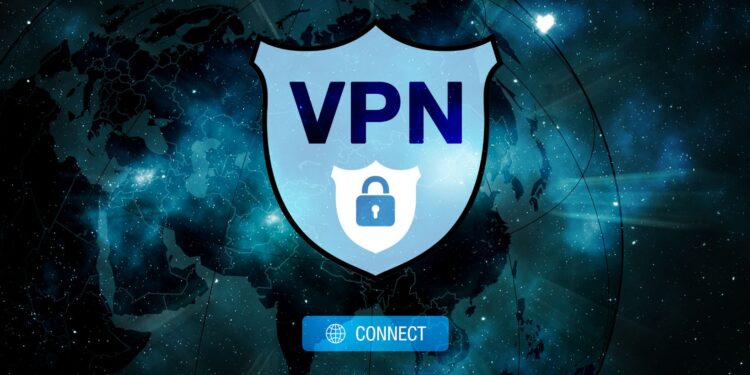A VPN or virtual private network is a tool that consumers and businesses use to maintain privacy and keep their online activities anonymous to third parties. Aside from being a security tool, it also enhances several aspects of your online experience, including streaming movies, TV shows, and sports programs wherever you are. VPN’s are also available as browser extensions, so it’s easy to find one specifically designed for Microsoft Edge, Google Chrome, Apple Safari, and others.
With online games rising in popularity, the gaming community has been asking whether or not using a VPN is beneficial for them. The answer isn’t as simple as one might think since there are several factors to consider. With the gaming industry predicted to generate $212.4 billion in yearly revenues by 2026, however, this topic deserves serious discussion. This article attempts to start the conversation by providing some pros and cons of using VPN for gaming.
Understanding VPN
Equally vital as understanding gaming basics, you should also understand what a VPN is first before jumping into the fray. A VPN is a tool that routes all your internet traffic through a private, dedicated server. This remote server encrypts data in real-time as it travels and is only decrypted when it arrives at the server controlled by the VPN service. As data travels back to your device, it’s again encrypted and is only decrypted when it reaches your device.

This prevents malicious third parties from gaining unauthorized access to your data. Even if they do intercept your internet traffic, they won’t be able to view or use it because it’s encrypted. Additionally, VPN service also masks your IP address, making it appear that you’re in a different geographical location and allowing you to access restricted content like region-specific movies or games.
The Pros and Cons of Using VPN for Gaming
While you have the option to choose legitimate and trustworthy gaming sites, not all online players are as friendly or as trustworthy as the gaming site you choose. This is why you can never be too safe whenever you’re gaming online. A VPN adds another layer of security while you’re online, helping you improve latency and connecting you faster to your games and online friends.
While there are myriad reasons why a VPN is beneficial to gamers, it may not be for everyone. Below, we list down the pros and cons so you can decide for yourself.
The Pros
- It can improve lag by lowering ping rates.
While technically designed to avoid geo-restrictions, a VPN’s IP masking feature can also help you improve lag by allowing you to connect to a specific game server. Using a new location, you can steer clear of busy, overcrowded hosts with high latency and connect to another that’s not as busy. This not only reduces your ping but also improves your overall gaming experience by significantly reducing lag. You can also use a VPN to leverage the time difference between different regions; when choosing a game server, choose one in a nighttime zone where there’s an increased likelihood of finding a server slot. This allows you to focus more on gaming instead of trying to find a slot on a busy server.
- It can help avoid throttling by your internet service provider (ISP).
There are some ISPs that follow a practice referred to as bandwidth throttling, where connection speeds are deliberately slowed down. This is done in specific situations, especially when internet traffic becomes too congested, and the traffic overload forces the ISP to reduce users’ access speeds. Depending on an ISP’s terms of service, it may also target high-bandwidth users who spend most of their bandwidth streaming video content, downloading large files, or playing online AAA games. You can test for throttling by playing an online game without a VPN and doing it again with a VPN service turned on. If your connection speed improves with the VPN on, you’ll know that your ISP is throttling your connection. Low latency and high connection speeds are the recipe for a smooth gaming experience, and a VPN can help you on both fronts.

- It helps avoid DDoS attacks and swatting.
By masking your IP address and anonymizing your internet connection, a VPN makes it harder for cybercriminals to perform a DDoS attack. This also makes it harder for third parties or other gamers to find your physical address through your IP, which means they can’t swat you or harass you in any other way.
- It gives you access to games released only in specific regions.
One of the main reasons consumers use a VPN is to bypass geo-restrictions imposed by streaming service providers—and this feature also applies to games. Using a VPN allows you to get early access to games released in other regions before your own. If a specific game is blocked or isn’t available in your country, you can also get your hands on it by using a VPN to mask your IP address and connecting to a specific country server where that game is available. This isn’t guaranteed to work all the time, however, as some gaming platforms use innovative solutions like cookie and browser fingerprinting technology to determine your actual location.
The Cons
- It can get you banned.
It’s not illegal to use a VPN, but it can get you banned from some gaming servers that restrict their use. There are also some countries that don’t allow the use of VPNs, like China, North Korea, or Russia. It pays to do your homework before installing and using a VPN to ensure that you don’t violate any terms of service or get into legal trouble.
- It can slow down your raw connection speed.
Because a VPN routes all internet traffic to a dedicated server, using one will slow down your connection speed—unless your ISP is throttling your connection. Different VPN service providers will slow down your connection at varying rates, but using one generally doesn’t slow down your connection enough that you’d feel the difference. Your mileage will vary, but it’s important to know that using a VPN has an effect on your connection speed.
- It’s an added cost.
While there are free VPN services available, the real feature-packed and robust ones can’t be had without a fee. For some, the cost may be worth it, especially if they’re always online and most of the games they play are online multiplayer games. However, if your games are mostly offline and you’re not that concerned about online security and have good connection speeds, it may be hard to justify the cost of a VPN service.
Do You Really Need a VPN for Gaming?
To determine whether or not a VPN is for you, consider the following questions:
- Do you want to safeguard your online privacy?
- Are you looking to bypass geo-restrictions?
- Do you want to minimize lag and ping times?
- Is changing servers outside of a game client important to you?
If you answered “yes” to any of the questions above, then it’s a good bet that you’ll find a VPN beneficial. It won’t be a necessity for most gamers, and using or not using a VPN won’t make a difference in their gaming experience. If you’re experiencing problems with latency and overall connection speeds, though, a VPN can significantly improve your online gaming.



























































































